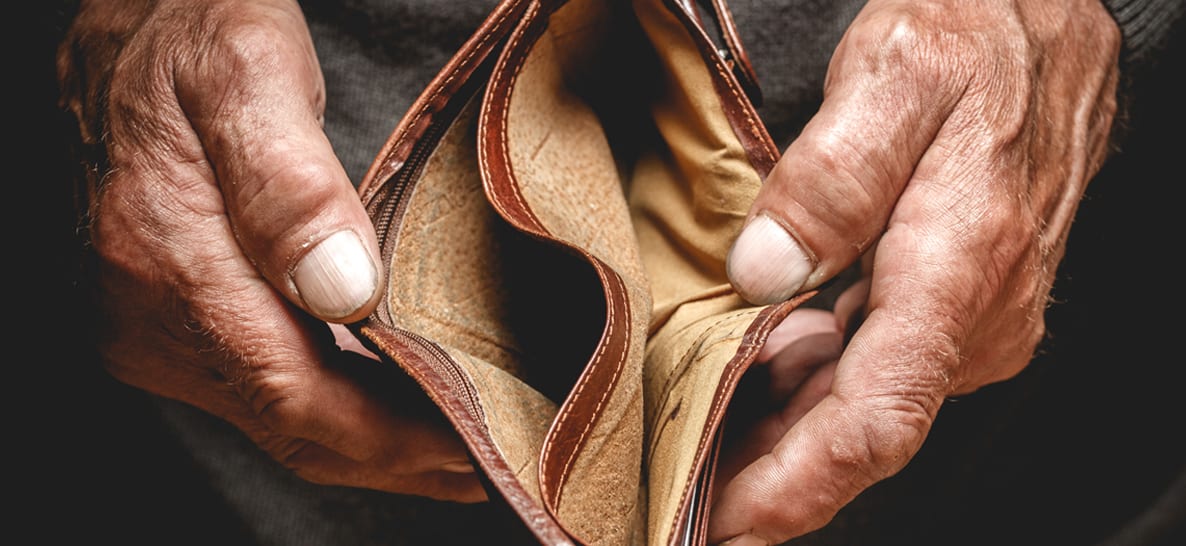
Many of us have left a church service with a leaflet asking us to sponsor a child in a developing country. The image of the child, holding a smaller sibling on her hip, tells us that these brown children are poorer than us, and they need our help to break a cycle of poverty.
The leaflets often make it seem as if poverty is “out there,” whether that’s in the Global South or the inner city, and that the fight against it only includes a monthly donation and a couple of hours of volunteering or a short missions trip.
Poverty ‘In Here’
The desire to help is earnest, and as a rich nation, the U.S. has much to give to other countries. But poverty is, of course, not exclusively found in the Global South. Income inequality has steadily been on the rise since the 1970s, and is high compared to Europe, especially the low wages on the bottom and the extremely high wages on the top.
Generational inequality is increasing and millennials are experiencing firsthand that poverty can hit everyone, even when you’ve been raised in a wealthy suburb.
Millennials are poorer than their parents, and it restricts where we live, how we interact with our friends and how much of the world we can see.
Our experience of downward mobility allows us to relate to people in poverty in other parts of the world, and exposes the sometimes slightly condescending attitude Westerners unwittingly have toward the Global South. Similarly, some of our baby-boomer elders tell us that we are poor because we’re lazy, spending too much time on Facebook and not working enough. Those of us who live it know that’s not true, so some of their assumptions about helpless people living in poverty don’t hold up for us either.
I’m not saying millennials with low-paying jobs are the same as people suffering through extreme poverty around the world. Even the most overeducated, underpaid millennial in America is, globally speaking, one of the richest people in the world. But many of the causes are the same, and the Church can learn from them a sustainable way truly to fight for the poor.
If poverty is on the rise, then it means that we are doing something to make it increase. If we are creating it then we can also choose to solve it, but as child sponsorship shows, we are more comfortable solving something that is a little bit removed from us.
When problems are at a distance it makes it easier to see them because admitting that something is wrong in our society can be akin to admitting something is wrong with ourselves. And that’s painful. So instead, we blame the individual for not taking responsibility for their own mess.
Poverty as a Trial
This leads a lot of us (myself included) to experience poverty as a trial that has a purpose, when really scarcity is never part of the deal with God. On a large-scale, poverty often has little to do with character flaws, and more with a wealth-segregated, debt-driven education system, a lack of well-paying jobs and a rental market that makes it difficult to get your foot on the housing ladder.
That doesn’t stop us from telling stories to ourselves to explain why we’re struggling. “This is about self-control.” Or, “If I get a well-paying job later, I can push the company to pay their interns.” Sure, you can redeem your experience if the opportunity presents itself.
But, what really should be at the top of the list of the Church is fixing poverty locally long-term.
Granted, there has been a long and impressive tradition of fighting poverty in the Church. The Church has responded by setting up food banks, training unskilled workers, creating shelters. Undoubtedly, this has done a world of good. But it only takes the sting out of poverty, it doesn’t prevent it.
Training someone to be a teaching assistant doesn’t create a teaching assistant job. Sheltering someone for a night doesn’t give them a home.
A lot of us have done our part in small ways, but this has done little to end large-scale poverty. To end it, we have to move from the individual homeless person to the collective of American society.
If a spiritual trial can be found in poverty, let it be in the messy and self-dying work of eradicating it. There’s a lot you can do:
Become literate in what affects tax policy has on the most vulnerable, even when it benefits you.
Write to your local government about the cost of code violations, traffic fines and other small infractions that criminalize minimum wage earners if they can’t pay. Rethink some key moral questions in terms of what they do to people in poverty, such as criminalizing sex work or abortion. Think beyond services that your church can provide for people already in poverty towards a bigger dream of preventing poverty in the first place.
Besides being a dreamer and an idealist, I also want to get things done. And as a young generation with a good chunk of life ahead of us, we can fix not only what’s “out there” but also what’s “in here” and travel slowly but urgently, towards that idea of home that is imprinted so deeply on our hearts.





















